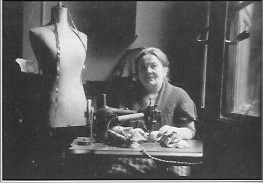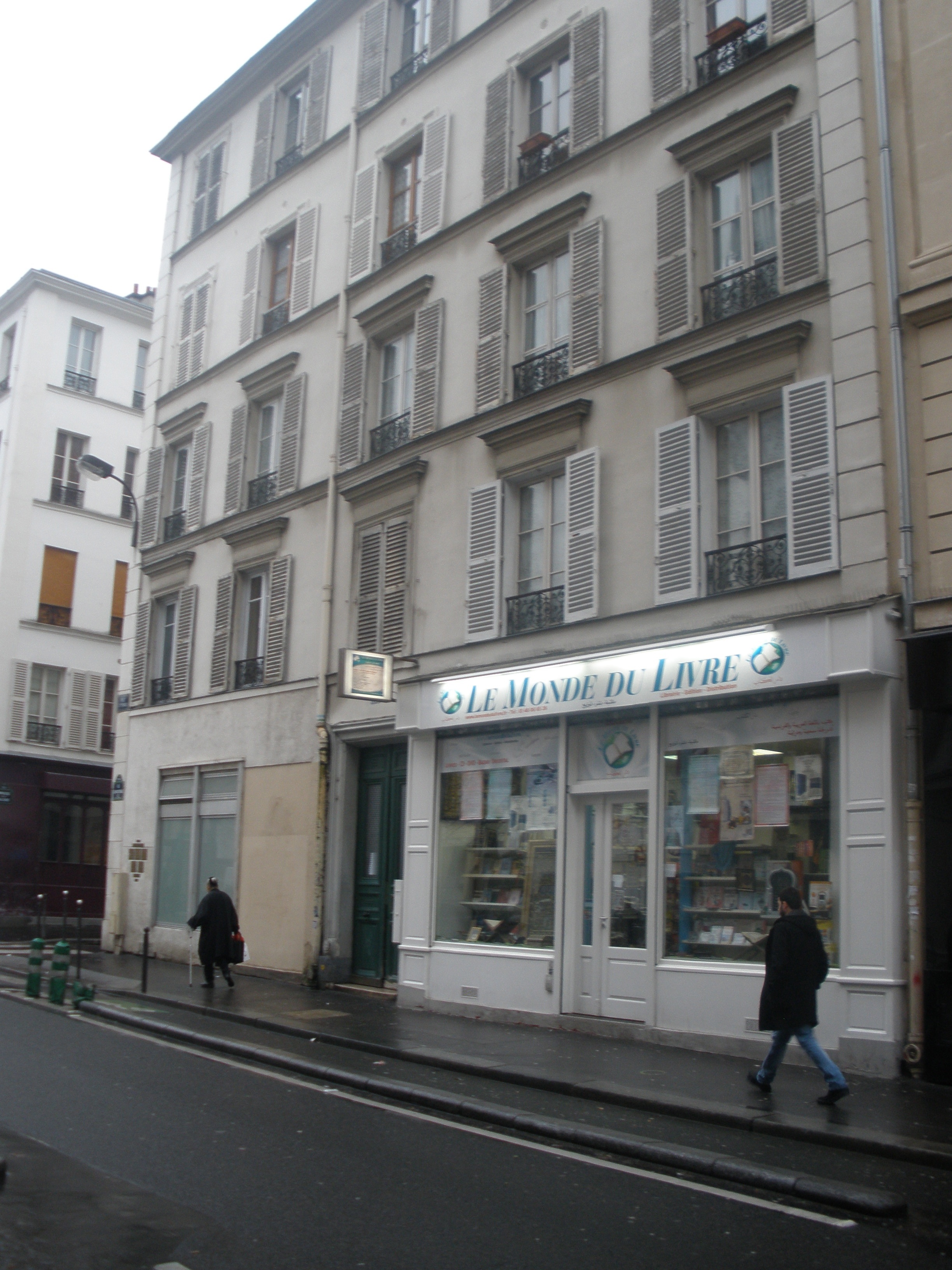ODETTE’S SECRETS is a story for younger readers told in verse (Bloomsbury, 2013), about a Jewish girl named Odette living in Paris during World War II. While classified as fiction, it is based very closely on a true story about a real girl named Odette. When the Germans occupied Paris, Odette was sent to the country to live with a family where she had to pretend to be a Christian child, while many of her family and friends were sent to concentration camps. Happily, her mother was able to join her eventually, while her father fought for the French army. He, too, survived.
The photo above is of Odette and her Mama in 1942.
Madame Marie, a close family friend who helped get Odette out of Paris to safety.
The apartment in Paris where Odette lived with her family before the war.
Maryann McDonald is the author of over 25 books for young readers (including The Christmas Cat , out this month from Dial). She grew up outside of Detroit, lived in England and France for many years, and now lives in New York City.
Why do you think Odette’s story spoke to you?
I was fascinated with the idea that many thousands of French Jewish children survived WWII by hiding in plain sight. I wondered what effect hiding in this way might have on a child. What would be the cost of impersonating someone else at a tender age?
Odette’s memoir, Doors to Madame Marie, told about this experience. She explained, in simple terms, how her childhood conscience developed, and how she came to terms with what she understood as necessary lies. She also discussed the consequences these lies had on her developing sense of self. This, in addition to the many intimate details of Odette’s life experience in Paris and the Vendee during WWII, made her story come alive for me.
Papa, in the image Odette carried with her throughout war, wearing his soldier’s uniform.
What makes this historical fiction rather than a biography?
The story is written in the first person, in free verse. I made the choice to write it this way because I wanted it to sound as if Odette herself was telling the story. Odette did tell her story many times in schools, churches and synagogues. And she loved poetry, and thought it contributed to her survival. But my choice to write the story in first-person verse took it out of the realms of biography. Nevertheless, I was extremely careful to keep the facts straight and to refer only to situations and conversations I knew took place. I wanted everything to be as accurate as possible.
Jacques Raffin, the man you met in the village of Chavagnes-en-Paillers, lived with Odette when they were children and she first escaped Paris. How did he remember Odette? Did he know her secret? Why was Odette safer there than in Paris?
Jacques Raffin was a very old man when I met him. He welcomed me and my husband, showed us around his house and garden, and reminisced about playing with Odette there, but did not say anything in particular about her except that she had later come to visit his family. I never thought to ask Monsieur Raffin if he knew her secret as a child…I wish I had!
The place where Odette lived in the Vendee was considered a remote backwater. Although there were German soldiers in the region, the main focus of the war was elsewhere. Life moved along in the slow, traditional ways it always had in this conservative Catholic community. Even Odette and her friends thought they were the only Jewish children hidden there. In fact, as they discovered after the war, there were more than forty.
There was an interesting statistic in your notes about the large number of children saved in France during the war years. Can you tell us more about that?
In 1940 there were about 70,000 Jews younger than eighteen years-old living in France. About 11,400 of them were deported. Almost all of the deported children died. However, the other 84% survived.
I was astonished when I first learned this. One hears often about how the French were collaborators with the Nazis during WWII, and on the official level this was true. But on the personal level, many French either looked the other way or assisted Jews to survive. About 76% of the French Jewish population in total survived. They could not have done this without people like Madame Marie, Monsieur Henri, and the Raffins.
Part 2 next!














fascinating interview. Thanks for sharing about this book. Will look it up!
Thanks for stopping by, Carol!
Yes, thank you for a wonderful interview and descriptions about the background of both Odette’s story, her own written memoir, and the situation of Jewish children in France during WWII. I want to read both this historical fiction and the original memoir!
Nancy Bo Flood
Asolutely my favorite genre – historical fiction and it’s been a while since I’ve read a great one. Can’t wait to read about Odette’s Secrets.
Absolutely my favorite genre – historical fiction and it’s been a while since I’ve read a great one. Can’t wait to read about Odette’s Secrets.